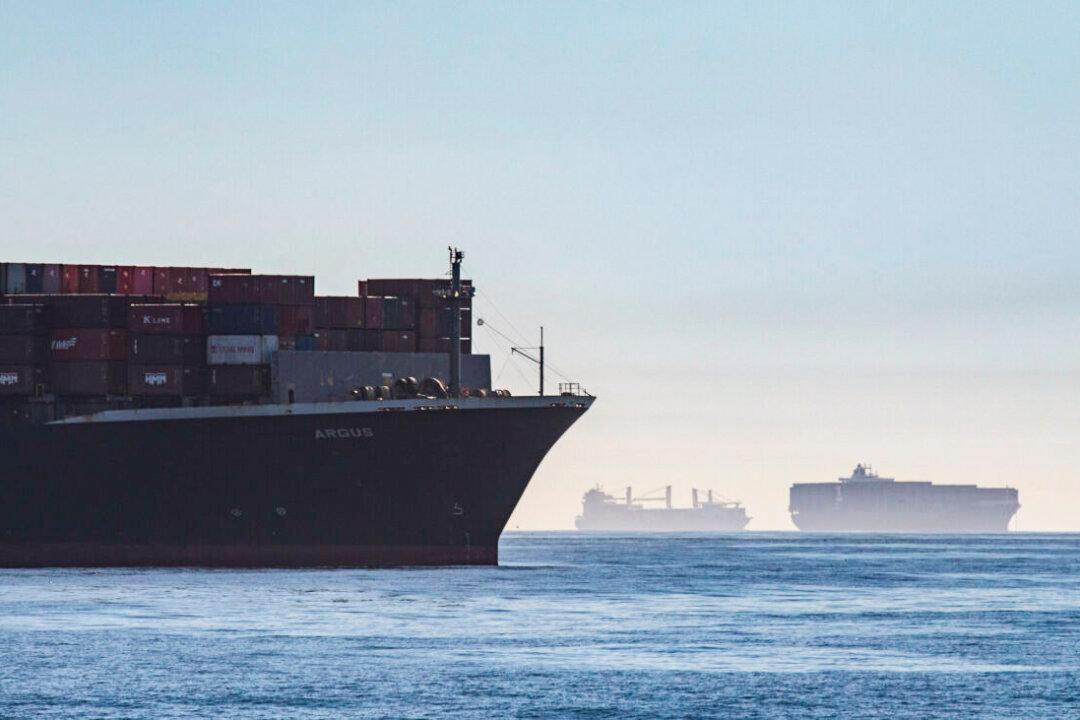LOS ANGELES—Cargo ships waited in record numbers to offload goods at the nation’s busiest ports this week as officials again delayed the start of a new system that would fine shipping companies for storing containers at the busy terminals.
An influx of 96 container ships were waiting in line to offload at the Los Angeles and Long Beach ports on Dec. 3, said Kip Louttit, executive director of the Marine Exchange of Southern California.





